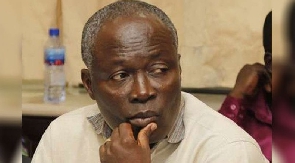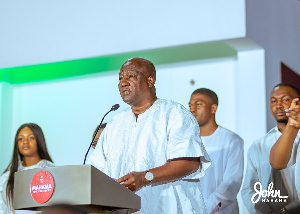“…To each among you we have prescribed a law and an open way. If Allah had so willed, He would have made you one people, but his plan is to test you in what he has given you, so strive as in a race in all virtues. The goal of you all is to Allah. It is he that will show you the truth of the matters in which you dispute”. (Q: 5:48)
This is the Qur’anic stipulation that endorses diversity of opinion. In other words Allah recognizes that it is diversity that enriches human interaction. But as master of the Day of Judgment, he will settle all the matters about which we have divergent opinions. In other words, as mortals we do not have the wherewithal to determine which opinion is right or wrong. Allah is the supreme judge. Elsewhere Allah states that “Oh mankind, we created you from a single (pair) of a male and a female, and made you into tribes and nations, that you may know one other”. (Q: 49:13)
The reason we need to know others other than ourselves, is because they are different from us. They are different in terms of their education and training, upbringing, perception, understanding and more importantly their appreciation of the divine essence. The principle that underlies this “need to know another” is one of co-operation rather than disdain or contempt. At the beginning of the Prophet Muhammad’s mission when the Makkan aristocracies were up in arms against the religion, the Prophet Muhammad asked his followers to migrate to Abyssinia (Ethiopia) because the ruling classes in Ethiopia were Christians. The Qur’an itself states that “thou shall certainly find the Jews and those who associate partners with God to be the most vehement of men in enmity against the believers. And thou shall assuredly find those who say “We are Christians” to be the nearest of them in love to the believers. That is because amongst them are servants and monks and because they are not proud”. (Q: 5:82)
When the challenge to the Muahammad’s Prophetic authority was at its highest and when he was at his wit’s end in dealing with the challenge of the Makkan aristocracies, Allah commanded him to say, “I worship not that which you worship; Nor worship you what I worship; And I am not going to worship that which you worship; Nor will you worship what I worship; To you be your religion and to me, mine”. (Q: 109:2-6) Elsewhere Allah tells the Prophet that there is no compulsion in religion. “There should be no compulsion in religion. Surely right has become distinct from wrong…” (Q: 2:256). Allah further reminds the Prophet that his duty is merely to proclaim the message. It is not his duty to bring the people to account. “…for on thee lies only the delivery of the message and on us the reckoning”. (Q: 13:40)
I have gone through these Qur’anic stipulations in order to establish the point that Islam recognizes diversity of thought both within its fold and from without. Today however, there is the widespread and ingrained perception that Islam is intolerant of other religious opinions. Worse still, that the various shades of opinions within Islam itself are intolerant of one another.
Recently I was at an interview for a position and the question of Islam’s intolerance came up. I was asked specifically about Salman Rushdie’s “Satanic Verses” and whether I thought the fatwa issued on his head was in tune with Islamic teaching. I answered that the Qur’an allows for retaliation. The Qur’an stipulates that retaliation is allowed provided the one retaliating will be able to do so in like measure. (Q: 17:34) If one is incapable of retaliating in like measure, then forgiveness is better. I therefore said that I thought that Muslims should have written a fitting response to the “Satanic Verses” rather than ask that Salman Rushdie be killed. After all he didn’t kill a Muslim; he wrote against Islam.
I agree that there is a lot of intolerance on the part of so-called Ulama who have arrogated to themselves the right to define the character and nature of Islam. Some how they are not to blame. In theological institutes, that is, both Islamic and Christian based, the purpose of teaching is to kindle zeal and fervour in the students for the defence and spread of the faith for which they form part. Indeed not just the faith as in Islam or Christianity, but within the particular confines of their sub-sectoral doctrines. For example the Ulama who go to study in Saudi Arabia are schooled in the Wahabi doctrine of Islam to the exclusion of any other view point. Therefore they come out of the institute oblivious of the fact that there are other opinions other than the one that they hold.
In the Qur’an Allah assures the prophet that he Allah is the one who has revealed the Qur’an and he would be its protector. “Verily we ourselves have sent down this exhortation, and most surely we would be its guardian”. (Q: 15:10) The fatwas of the Ulama is not that which will assure the sanctity and integrity of Islam. On the contrary, it portrays Islam as aggressive, insensitive, intolerant and outdated. Allah admonishes us in the Qur’an to preach to people, mindful of their feelings, beliefs and emotions. “Call unto the way of thy lord with wisdom and goodly exhortation, and argue with them in a way that is best. Surely, thy lord knows best who has strayed from his way and he knows those who are rightly guided”. (Q: 16: 125)
It is therefore sad to see or hear that two Muslim factions have attacked each other because in the view of the other, the other faction engaged in acts that were supposedly unislamic. Indeed they should be reminded that only Allah knows those who are rightly guided and those who are not. Indeed the Prophet Muhammad is reported to have been angry with Khalid Bin Walid because he had killed an opponent in battle in spite of the fact that the opponent had pronounced the Khalimat. Walid responded that he thought the man was being hypocritical. The Prophet said, anybody who pronounces the Khalimat should be considered a Muslim and it is not for us to determine their genuineness or otherwise.
On Friday 20th March 2009 on Gifty Anti’s Ghana Television programme, StandPoint, there were three Muslim panelists. Mustapha Hamid Bawre (this writer) a student of religion, not a theological scholar representing or espousing a certain view of Islam. Hamida Nuhu, a lawyer and Muslim. There was also Hanatu Bimi, a student and Muslim. Gifty chose the panel to reflect certain shades of opinion. Hamida represents the liberal brand of Islam. The liberal brand of Islam recognizes that a Muslim is saved not in the final analysis by doing good works; but by recognizing that they are good, and that one ought to do them. To the liberal mind, a drunken Muslim is still a Muslim. A prostitute Muslim is still a Muslim.
Hanatu represented the conservative brand of Islam that asserts that being Muslim is to be seen manifestly espousing Islamic principles in one’s life. Mustapha Hamid Bawre represented the academic brand of Islam that recognizes that there are other faiths apart from Islam that also have a legitimate claim to God and that people have the right to relate to God from their peculiar understanding and perspective. The goal of the academic is to give vent to all the possible shades of opinions that there are.
No host could have chosen a better panel than this. And true to form, all the panelists espoused their views according to their beliefs. I thought it was the best StandPoint programme I had watched so far. After the programme Gifty Anti told me some Muslims which obviously I reckon come from the conservative strand, called her to complain about Hamida’s views on veiling. And what were Hamida’s views? She said she recognizes that wearing the veil distinguishes one as a Muslim. But she said she is unable to wear the veil all the time and that with or without the veil, she considers herself properly dressed at all times. Indeed Mustapha added that she needn’t be agitated if she was unable to wear the veil because she was equally as decent in her kaba. How could such views attract the eerie of the conservatives? Why can’t people learn to tolerate other opinions? Why must it be their view that holds sway all the time? Especially when their views are not even based on any solid ground.
I am unable to distinguish the veil of piety from the veil of impropriety. I am unable to distinguish the veil of hypocrisy from the veil of genuine belief. I am unable to distinguish the veil of freedom from the veil of suppression. Therefore it is not the wearing of a veil that makes a woman more or less Muslim. I had always thought that if there are any people who would appreciate the beauty of diversity, it should be the Muslims. They alone have what are called the five schools of legal thought where divergent opinions are proffered on the same religious matter. Yet this religion unjustly attracts for itself the accolade, “intolerant”.
Irshad Manji in her book titled The Trouble With Islam Today, calls herself a Muslim refusenik. I will quote her word for word. “I am a Muslim refusenik. That doesn’t mean I refuse to be Muslim; it simply means I refuse to join an army of automatons in the name of Allah…I believe that we Muslims are capable of being more thoughtful and humane than most of our clerics give us credit for. But for the sake of an honest discussion, I have to challenge you to come clean about the Islam that you reflexively defend. Is this Islam in its real form or Islam as an ideal? Lets face it: everything is wonderful as an ideal. Communism is egalitarian as an ideal. Capitalism is fair as an ideal. The United States constitution guarantees liberty and justice for all, as an ideal. Muslims know that the reality is very different. As people of conscience, we have to address Islam’s realities too”.
I want to assert as a conclusion, that Muslims have a lot to do in the departments of dissent and tolerance. We need to rescue the religion from the hands of those who insist that only their view point exists. And that only their view point represents the true Islamic position. Worse still, when they believe that no other view should exist except theirs. We can do this as Irshad says by refusing to join their “army of automatons in the name of Allah”. We need to recognize that other view points exist and that those view points are as valid as ours. And perhaps more importantly, that we are not certified enforcers of God’s law. Indeed the Prophet Muhammad was himself admonished by Allah only to warn (preach) and not to enforce.
Islam teaches tolerance and allows for diversity of opinion. The Ulama repudiate tolerance and diversity of opinion. Certainly the two are not the same.
Click to view details



Religion of Thursday, 26 March 2009
Source: By: Mustapha Hamid Bawre


















